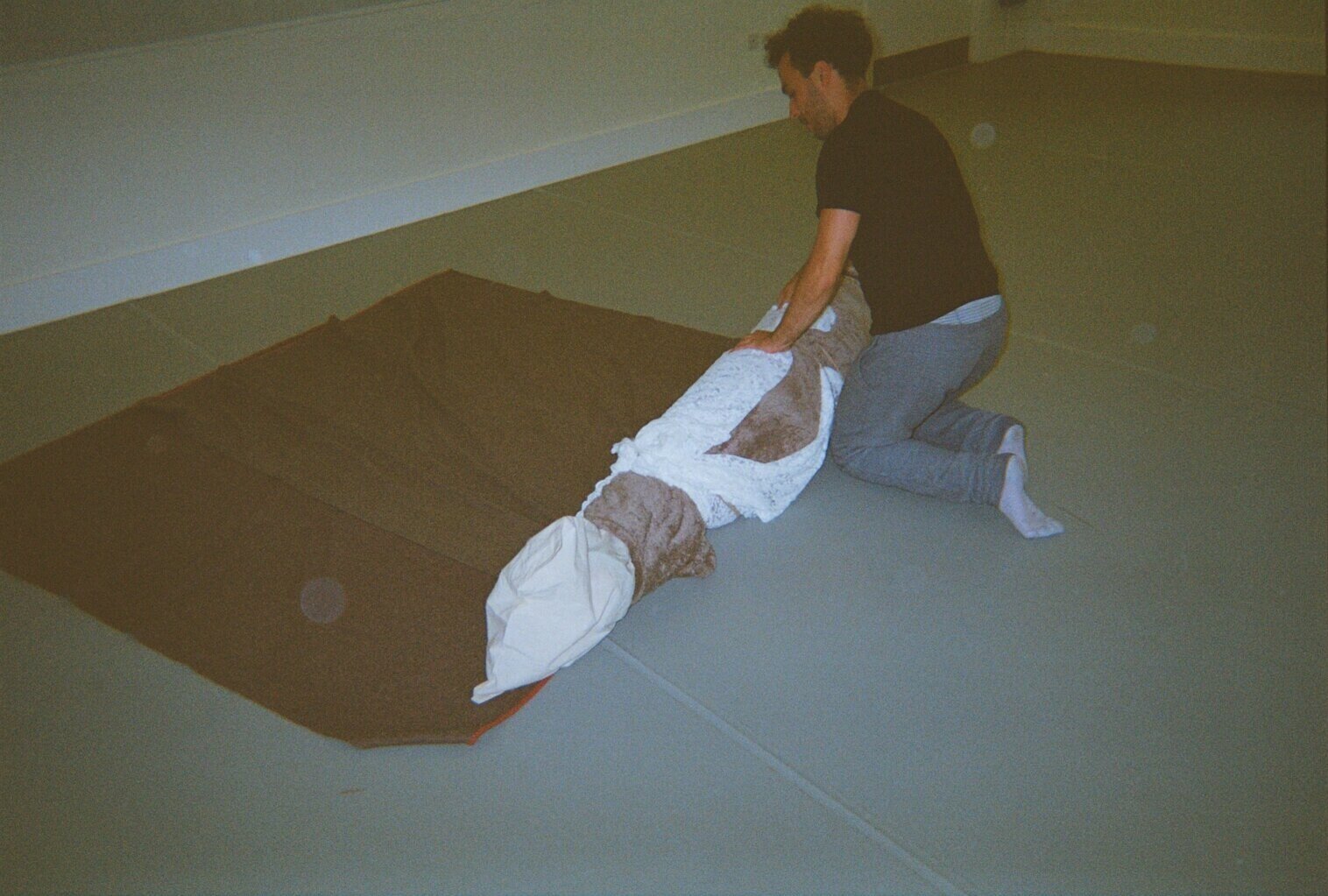Room Service
I want to develop ‘Room Service’ a choreographic, instructional game that started as part of a longer performance in 2018. One person reads from a deck of cards to make strange, difficult and absurd requests of another person. It can be fun, intimate and challenging but the game has consent mechanisms built in so both participants can keep things comfortable. I think it can be developed as something that can be played at home as well as in performances by strangers, friends and colleagues.
Collaboration: This is something I would be interested to play with you but also it could be that you find two people to play who are comfortable with taking risks, nudity, sexual contact and then you photograph them as they play.
Room Service is a game in which one person uses a deck of printed instruction cards to instruct another person over an hour. The cards might say something like ‘sing to me’, ‘undress me’ or ‘tell me my future’. They are influenced by choreography, healthcare and BDSM. They don’t have to use all the cards. In advance, players remove any cards they don’t want to come up, during play the asker can skip a card and the doer can refuse any instruction.
It started as a performance score in NO CLIMAX YET but I think it has the potential to work in private settings too (verbal card games of intimacy are currently popular e.g. We’re Not Really Strangers or those produced by the School of Life.
This research is starting to look at the idea of ‘delegation’ - when people do things for you that you cannot or do not want to do. This is a way to think about care (from medical interventions to personal assistants to beauticians), one that sits in a history of choreographic works that involve delegation and remote control (e.g. Manual by Siobhan Davies; Choreograph Me by Harold Offeh; and my own history of games and instructional choreographies). I think choreography might tell us something about what’s happening in higher stakes care settings, and care theory might shed some light on the potentials and difficulties of participatory performance.
Eventually I want to test the game with different combinations of people - people from nursing, performers, friends, parent and child, lovers, fetishists. I want to see how the same open framework can be taken in lots of different directions. Some will be in private, some will be photographed and videos. This will hopefully be part of my PhD
It’s Urgent That We Take Our Time
This was a work I made in 2018. It was made from a ceiling mounted video footage of people being wrapped and unwrapped in fabric. The looped 1hr 20 minute film shows a series of overlapping performances of passivity and activity, movement and stillness. See how different bodies are negotiated, roles switch and the cycle of dependancy and attention goes on and on, before the viewer arrives and long after they leave.
Collaboration: I would like to continue this work with different combinations of people and include other elements like stripping and washing. The documentation does not need to be as clinical as the video work. An early version of it just used 10 photographs to capture the process:
Gentle Touch
I want to reproduce images from medical examination textbooks but de-medicalise them. So the same touch becomes ordinarily caring or erotic or something else unclear. So the pose and angle is identical but casting and costume and scenography are different. Maybe multiple variations of people in each pose
Need to be careful because some textbook are already described as soft porn: https://www.collectiveshout.org/australian_medical_school_textbook_sexually_objectifies_women
Photography Duet
This is a score I want to develop as way to play with the photographer-subject relationship, learn more about photography, disrupt habits etc.
Requires
Two photographers
One film camera (or digital)
36 blank cards (or less)
How to play:
Each person writes down 18 inspirations/ instructions for a portrait. These could be literal or abstract.
Shuffle the cards
Take turns to photograph each other, drawing a card for each shot
Develop the film
Meet up and discuss
We could do this together but maybe it’s more of a simple exercise.
You’re in my heart. I’m in your head
I think this isn’t relevant but FYI











